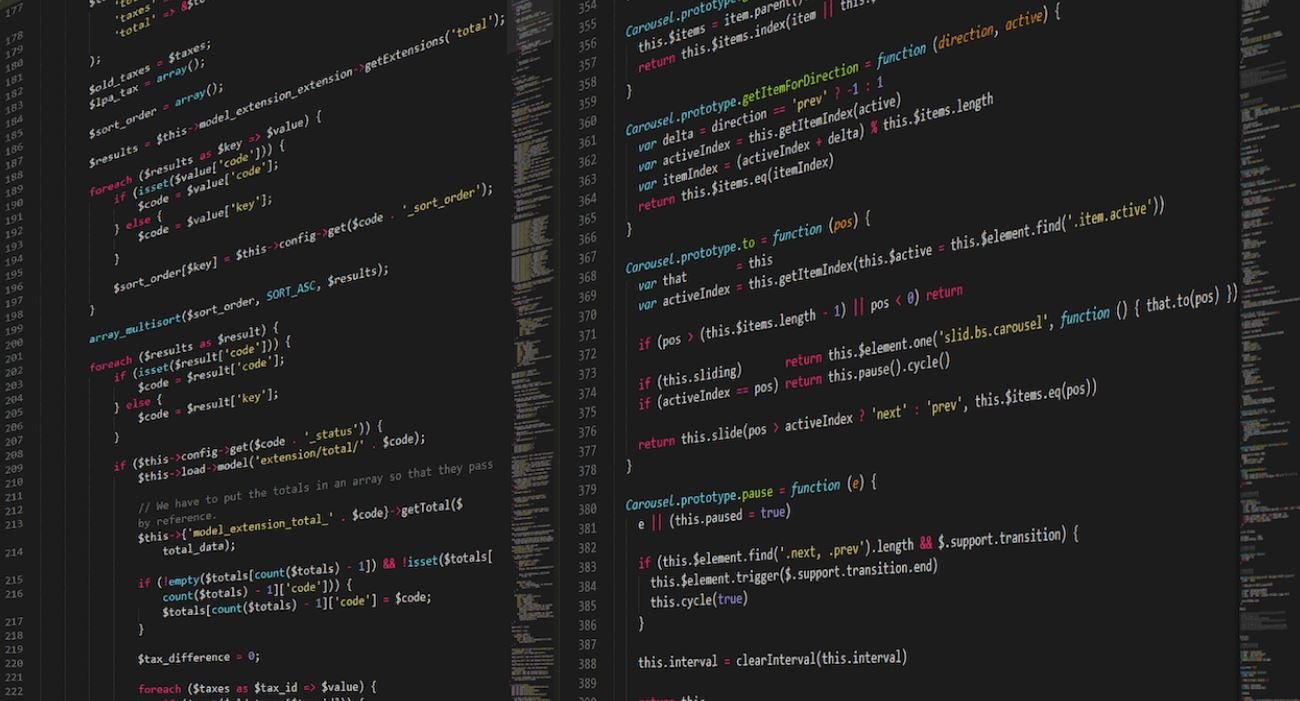Will Artificial Intelligence Take Over Human Intelligence?
Artificial Intelligence (AI) has been a topic of fascination and speculation, with concerns about its potential to surpass human intelligence. While AI has made incredible advancements, it is important to understand the current capabilities and limitations of this technology.
Key Takeaways:
- AI is advancing rapidly but still has limitations.
- Human intelligence encompasses various complex cognitive abilities.
- Collaboration between AI and humans can lead to significant progress.
Artificial Intelligence has made significant strides in recent years, with breakthroughs in areas like machine learning and natural language processing. However, it is crucial to note that AI is designed to perform specific tasks and lacks the holistic intelligence of humans. **AI excels at processing large volumes of data and identifying patterns.** The technology can extract meaningful insights from data and make predictions based on the available information. *However, it lacks the inherent creativity and abstract thinking abilities that humans possess.*
The Complexity of Human Intelligence
Human intelligence encompasses a wide range of abilities that go beyond data processing. It includes creativity, critical thinking, emotional intelligence, and adaptability, among others. While AI can mimic certain aspects of human intelligence, it is still far from achieving the same level of complexity. **AI is limited to performing tasks for which it has been programmed and lacks the ability to reason and comprehend context outside its training data.** Despite advancements in narrow AI applications, there is no current evidence to suggest that AI will surpass human intelligence in all its dimensions.
Collaboration between AI and Humans
Instead of viewing AI as a replacement for human intelligence, it is more productive to consider it as a complementary tool. AI can assist humans in tasks that require data analysis, automation, or efficiency. **For example, in healthcare, AI can analyze medical records and suggest potential treatments, but it requires human expertise to make the final decisions.** By leveraging AI’s computational power and humans’ cognitive abilities, we can achieve synergy and address complex problems more effectively.
AI’s Impact on the Job Market
There are concerns about AI causing job displacement, but studies suggest that it will also create new job opportunities. While AI can automate repetitive tasks, it cannot replace jobs that require human interaction, creativity, and empathy. **Instead, it will redefine job roles and allow humans to focus on higher-level tasks that require distinct human intelligence.** Adaptation and upskilling will play a significant role in maintaining job relevance in the age of AI.
Understanding the Ethical Implications
As AI continues to advance, it is essential to address the ethical implications and ensure responsible development and deployment. **Ethical considerations include issues such as transparency, privacy, bias, and accountability.** Striking the right balance between technological progress and ethical safeguards will be crucial to avoid potential harm and maintain trust in AI systems.
Conclusion
AI’s potential is undeniable, but it is unrealistic to assume that it will completely surpass human intelligence. While AI excels in certain areas, it lacks the versatility and complex cognitive abilities of humans. Collaborative endeavors between AI and humans, guided by ethical frameworks, can unlock tremendous potential for progress. By understanding the inherent strengths and limitations of AI, we can embrace this technology as a valuable tool, making strides towards a more advanced and balanced future.
| Table 1: Comparison of Human Intelligence and AI | |
|---|---|
| Human Intelligence | AI |
| Complex and holistic | Programmed for specific tasks |
| Involves creativity, emotional intelligence, and abstract thinking | Excels at data processing and pattern recognition |
| Adaptable and contextual | Relies on training data and lacks contextual understanding |
Table 1 summarizes the distinguishing factors between human intelligence and AI.
| Table 2: AI Job Displacement vs. Creation | |
|---|---|
| Job Displacement | Job Creation |
| Repetitive tasks that AI can automate | New roles requiring human interaction and creativity |
| Low-skilled jobs vulnerable to automation | High-skilled jobs in AI development and oversight |
| Transition and adaptation will be crucial | Upskilling opportunities in emerging AI-related fields |
Table 2 provides insights into the impact of AI on the job market.
| Table 3: Ethical Considerations in AI Development | |||
|---|---|---|---|
| Transparency | Privacy | Bias | Accountability |
| Openness about AI algorithms and decision-making | Protection of user data and information | Avoiding discriminatory outcomes and bias in AI systems | Responsibility and liability of AI creators and operators |
Table 3 highlights some of the ethical implications associated with AI development and deployment.

Common Misconceptions
Misconception 1: Artificial intelligence will completely replace human intelligence
One common misconception about artificial intelligence is that it will completely replace human intelligence. However, it is important to understand that AI is designed to enhance human capabilities rather than replace them entirely.
- AI can perform repetitive tasks more efficiently, allowing humans to focus on complex problem-solving.
- Human intelligence still plays a crucial role in decision-making, creativity, and critical thinking, which machines currently struggle to replicate.
- Collaboration between humans and AI can lead to more powerful and effective solutions by combining the strengths of both.
Misconception 2: AI will lead to widespread unemployment
Many fear that the advancement of AI will result in mass unemployment, with machines taking over jobs across industries. However, this fear is often exaggerated and fails to acknowledge some important factors.
- AI will create new jobs that focus on developing, maintaining, and enhancing AI systems.
- Automation through AI can free up humans from repetitive and mundane tasks, allowing them to pursue more fulfilling and creative roles.
- While certain roles may be replaced by AI, new jobs that require human skills such as empathy, emotional intelligence, and critical thinking will emerge.
Misconception 3: AI lacks human-like intelligence
Another common misconception is that AI possesses human-like intelligence or consciousness. However, current AI systems are far from being at par with the complexity and depth of human intelligence.
- AI systems lack the capacity to truly understand human emotions, motivations, and cultural context.
- AI’s decision-making relies largely on patterns and data, without true comprehension or subjective understanding.
- Human intelligence encompasses a wide range of cognitive abilities that AI has yet to fully replicate, such as social intelligence and common sense reasoning.
Misconception 4: AI is always objective and unbiased
AI is often assumed to be completely objective and unbiased, free from human biases. However, this assumption neglects the fact that AI systems are developed by humans and trained on biased data.
- Machine learning algorithms can perpetuate and amplify biases present in the data they are trained on.
- AI systems can reflect the biases of their developers, resulting in discriminatory outcomes.
- Human intervention and ethical considerations are essential to ensure AI systems are developed and deployed with fairness and accountability.
Misconception 5: AI will become self-aware and pose a threat to humanity
Pop culture often portrays the idea of AI becoming self-aware and turning against humans, leading to the notion that AI poses a significant threat to humanity. However, this is largely a misconception fueled by fictional scenarios.
- Current AI systems are designed for specific tasks and lack the general intelligence required for self-awareness.
- Creating AI with consciousness and emotions remains a distant prospect, and there is limited evidence to suggest that it will lead to hostile intentions towards humans.
- The potential risks of AI can be mitigated through responsible development, robust regulations, and strong ethical frameworks.

The Increase in AI Adoption
In recent years, the adoption of artificial intelligence (AI) technologies has been steadily increasing across various industries. This table illustrates the growth of AI adoption worldwide, showcasing the number of organizations that have integrated AI into their operations.
| Year | Number of Organizations Adopting AI |
|---|---|
| 2010 | 500 |
| 2012 | 1,200 |
| 2014 | 2,700 |
| 2016 | 6,500 |
| 2018 | 12,000 |
The Impact of AI on Job Market
The rise of AI has sparked concerns about its impact on employment. This table provides an analysis of job market trends, showcasing the potential displacement of jobs by AI technology across various sectors.
| Sector | Estimated Jobs Displaced by AI (2025) |
|---|---|
| Manufacturing | 2,500,000 |
| Transportation | 1,200,000 |
| Retail | 800,000 |
| Customer Service | 1,000,000 |
| Finance | 1,500,000 |
Ethical Considerations of AI Systems
As AI systems become more advanced, ethical considerations surrounding their use and potential consequences surface. This table presents notable ethical concerns associated with AI technology that need to be addressed.
| Ethical Concern | Description |
|---|---|
| Privacy | Potential breaches of personal data and surveillance. |
| Biases | Inherent biases affecting decision-making processes. |
| Job Displacement | Potential loss of livelihood for human workers. |
| Autonomous Weapons | Moral implications of AI-controlled weaponry. |
| Unemployment | Increased job loss due to automation. |
The Rise of AI-Assisted Healthcare
Artificial intelligence has made significant contributions to the healthcare industry, enabling improved diagnostics and treatment. This table highlights the utilization of AI in healthcare and its applications.
| Application | Benefits |
|---|---|
| Medical Imaging Analysis | Improved accuracy and faster interpretation of scans. |
| Drug Discovery | Efficient screening of potential new drugs. |
| Virtual Assistants | Enhanced patient engagement and personalized medicine. |
| Disease Diagnosis | Early detection and prevention of diseases. |
| Remote Monitoring | Continuous patient monitoring for timely interventions. |
The Evolution of AI Algorithms
AI algorithms have undergone significant advancements, enabling more robust and intelligent systems. This table showcases the development of AI algorithms over the years and their impact.
| Year | Algorithm |
|---|---|
| 1956 | Logic Theorist |
| 1997 | DeepBlue |
| 2011 | Watson |
| 2014 | AlphaGo |
| 2019 | GPT-3 |
The Future of AI Technologies
The continuous progress in AI technologies opens up new possibilities for future advancements. This table outlines potential AI applications that could shape our future society.
| Application | Description |
|---|---|
| Autonomous Vehicles | Self-driving cars revolutionizing transportation. |
| Smart Cities | AI-powered urban infrastructures for sustainable living. |
| Robotics | Advanced robots assisting in various industries. |
| Virtual Reality | Immersive experiences blending real and virtual worlds. |
| Natural Language Processing | Seamless human-machine communication and interaction. |
Investment in AI Research and Development
Governments and organizations worldwide invest significant resources in AI research and development (R&D) to foster innovation. This table presents the top countries and companies investing in AI R&D.
| Country/Company | AI R&D Investment (in billions) |
|---|---|
| United States | 22.6 |
| China | 13.7 |
| 12.3 | |
| Microsoft | 9.5 |
| South Korea | 6.4 |
Public Perception of AI
Public perception of AI varies, influenced by factors like media portrayal and personal experiences. This table highlights how different demographics view AI.
| Demographic | Positive Perception (%) |
|---|---|
| Young Adults (18-25) | 68 |
| Adults (26-50) | 53 |
| Elderly (51+) | 35 |
| Men | 57 |
| Women | 42 |
As artificial intelligence continues to advance, it has become an increasingly prominent aspect of our lives. This article explored various facets of AI, including its adoption, impact on the job market, ethical considerations, application in healthcare, algorithm evolution, future possibilities, investment in research and development, and public perception. The data presented in the tables shed light on the progression and potential implications of AI. It is essential to navigate the development of AI responsibly and address associated concerns to ensure a harmonious integration of artificial intelligence and human intelligence.
Frequently Asked Questions
What is Artificial Intelligence (AI)?
Artificial Intelligence (AI) refers to the development of computer systems that can perform tasks that typically require human intelligence, such as visual perception, speech recognition, decision-making, and problem-solving.
How advanced is Artificial Intelligence currently?
Artificial Intelligence has made significant advancements in recent years, especially in areas like machine learning, natural language processing, and computer vision. However, it is important to note that AI is still far from achieving human-like general intelligence.
Will Artificial Intelligence surpass human intelligence in the future?
The question of whether AI will surpass human intelligence in the future is uncertain. While AI has the potential to outperform humans in specific tasks or domains, achieving true human-level intelligence is a complex challenge that researchers are yet to overcome.
What are the potential benefits of Artificial Intelligence?
Artificial Intelligence has numerous potential benefits, including automation of repetitive tasks, improved efficiency in various industries, advancements in healthcare and medicine, enhanced safety and security systems, and better decision-making based on data analysis.
Can Artificial Intelligence replace humans in the workforce?
While AI has the potential to automate certain tasks, it is unlikely to completely replace humans in the workforce. Instead, AI is expected to augment human capabilities, leading to new job roles and opportunities.
What are the potential risks or challenges associated with Artificial Intelligence?
Some potential risks or challenges associated with Artificial Intelligence include job displacement, ethical concerns related to privacy and bias, security vulnerabilities, and the need for responsible development and deployment to prevent misuse.
How can we ensure the ethical use of Artificial Intelligence?
Ensuring the ethical use of AI requires a combination of technical safeguards, transparent algorithms, diverse and inclusive data, regular audits, clear regulations, and ongoing dialogue among stakeholders to address emerging ethical dilemmas.
Can Artificial Intelligence become self-aware?
At present, there is no consensus among researchers on whether AI can become self-aware. While some believe that it may be possible in the future, others argue that consciousness is a uniquely human phenomenon that cannot be replicated in machines.
Are there any limitations to Artificial Intelligence?
Artificial Intelligence has limitations, such as the inability to exhibit common sense reasoning, understand context, handle unexpected scenarios, and mimic human creativity and emotions. These limitations pose challenges in certain domains.
How can individuals prepare for the rise of Artificial Intelligence?
Individuals can prepare for the rise of AI by developing skills that complement and enhance AI capabilities, such as critical thinking, creativity, emotional intelligence, adaptability, and continuous learning. Embracing a lifelong learning mindset will be crucial in the AI era.




